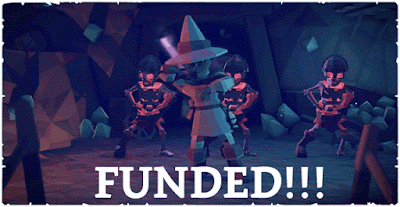I like what Jerry Coyne says about his career, so far, but one particular section caught my eye.
Several years ago, I began to realize that my job as a scientist and academic was not as challenging as it had been for the previous 35 years. I had mastered the requisites of such a job: doing research, writing papers, mentoring and teaching students, getting grants, and so on. The one challenge left was discovering new things about evolution, which was the really exciting thing about science. I’ve always said that there is nothing comparable to being the first person to see something that nobody’s seen before. Artists must derive some of the same satisfaction when creating new fictional worlds, or finding new ways to see the existing world, but it is only those who do science—and I mean “science” in the broad sense—who are privileged to find and verify new truths about our cosmos.For me, the pace of discovery in the lab was far too slow. Yes, it's true that you can be the very first person ever to see something that nobody has ever seen before but those "somethings" are often trivial. I learned that there was a heck of a lot that I didn't know but other people did. Furthermore, I needed to know all that stuff before I could really interpret my own lab results.
But finding truly new things—things that surprise and delight other scientists—is very rare, for science, like Steve Gould’s fossil record, is largely tedium punctuated by sudden change. And so, as I began to look for more sustaining challenges; I slowly ratcheted down my research, deciding that I’d retire after my one remaining student graduated. That decision was made two years ago, but the mechanics of retirement—and, in truth, my own ambivalence—have led to a slight delay. Today, though, is the day.
It was far more efficient, and far more exciting, for me to learn facts and information from others than to try and discover something truly important in my own lab.
That's why I decided to concentrate on writing, especially biochemistry textbooks. It was my opportunity to learn about everything and my opportunity to teach others about what was important and what was not important. It was my opportunity to think about biochemistry and evolution. That was much more satisfying, intellectually, than the tedium of everyday lab work. I was cocky enough to believe that I, personally, could contribute more to science through theory (and teaching) than through working at the bench.
As it turned out, I found far more ways of "seeing the existing world," as Jerry puts it, though reading, thinking, and teaching than I ever did by cloning a gene and studying its expression. So far, none of those ways are terribly original but they're at least new to me. And many of them are new to all the people around me who I keep pestering whenever I come across something interesting.
Nowadays, the tedium of stasis in everyday science isn't the only problem facing young scientists. There's also the tedium of grant writing and the tedium (and stress) of not getting a grant to keep your lab running. Perhaps they should get out of that rat race. We need more thinking in science and not more ChIP assays or RNA-Seq experiments.
I'd like to create an Institute for Advanced Study based on the Princeton model but with an emphasis on biology. I think we need to celebrate and honor thinking biologists and not just "doers" who run megalabs churning out more ENCODE results, or the genome sequence of a new species, or the 1001st human genome sequence.
I can think of a dozen scientists who I would hire right away if I had the money. Can you imagine how exciting it would be to put them all in one place where they can interact and be creative?
Maybe I should apply for a Templeton grant?



























